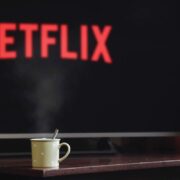
The content on Netflix and other video-on-demand (VOD) providers in the Philippines will not be censored, the country’s Movie and Television Review and Classification Board (MTRCB) said on Tuesday, September 8.
“We were not censoring. I hope that you don’t see MTRCB as a censorship board… We’re asking the VOD providers (to) do self-regulation with the parameters set forth by law,” said MTRCB chairperson Rachel Arenas during an interview with The Chiefs on Cignal TV’s One News.
She added, “There’s nothing actually to fear in terms of saying that we will curtail your freedom to choose. We just want the VOD providers to align with our classification.
Arenas also asked the VOD providers in the country to register with the MTRCB.
“This (plan to regulate) is not yet cast in stone. We will have to wait for them to read our guidelines. They’re (VOD) amenable to our proposal. Since you’re doing business here in the Philippines, and you have a lot of subscribers coming from the Philippines, can we ask you to, you know in good faith, register with us,” she said.
On Sept. 3, the MTRCB called for a policy that allows them to regulate content on Netflix and other online streaming services.
“We have to regulate those platforms,” Jonathan Presquito, the agency’s legal affairs chief, said during a Senate hearing on proposed measures on online transactions.
According to him, any motion picture falls under the MTRCB’s jurisdiction, from films to television shows to advertisements.
However, all of Netflix’s content is unrated by the MTRCB.
“Under the MTRCB law, those are prohibited materials. You cannot distribute that in the Philippine territory,” Presquito said.
He added that registering VOD services with the MTRCB and subsequent regulation would ensure films and shows are given age-appropriate classifications. Prohibited content will also not be shown.
“We want an environment of growth. Let’s allow these streaming services to flourish. But how to balance that with the regulatory mechanism?” Presquito said.
Lawmakers slam MTRCB’s plan
Speaker Alan Peter Cayetano said censoring Netflix is absurd.
“This is the kind of bureaucratic thinking that gives government workers a bad name …. Our countrymen have so many problems and this is what the MTRCB chooses to prioritize?” he said in a post on Facebook.
“The irony here is while Congress and other government agencies are doing everything it can to open up lines of communication with the public, and increase transparency, the MTRCB is focused on the outdated mindset of information regulation and censorship,” he added.
Senate Minority Leader Franklin Drilon, meanwhile, reminded the MTRCB that regulating the contents of online movie services would violate the 1987 Constitution, which prohibits prior restraint on mass media and guarantees the right to free expression.
He urged the MTRCB to promote self-regulation instead.
“The ratings are very specific. Upon subscription to Netflix, the parents can set what content their children can view. It has mechanisms that limit children’s access, a feature that free TV does not have,” Drilon said.
“If the platform is able to effectively self-regulate and has installed features through which access, particularly by certain age groups can be limited, then there is no role left for the MTRCB to play,” he added.
Senate President Vicente Sotto III, who wondered whose “bright idea” was it to regulate Netflix’s content, also advised self-regulation.
“Leave it to the parents,” he said.
“We should not be relying too much on the government, let the parents themselves regulate,” he added.
Sen. Grace Poe, a former MTRCB chair, called MTRCB’s plan “counterproductive and ridiculous.”
Poe also questioned the board’s ability to classify every show on the online streaming service.
“As it is, there isn’t enough manpower or even resources to view or evaluate every single program on cable [television],” she said.
Drilon echoed this sentiment.
“There are thousands of shows on Netflix alone – how will MTRCB review each one? Can the MTRCB review every single content that can be accessed through the internet? What will they do about virtual private networks (VPN) that allow users to access content from other countries?” the senator said.
Palace urges MTRCB to consider views of critics
Malacañang also urged the board to consider the lawmakers’ view on the proposal.
“We respect the decision of chairman Rachel Arenas and members of MTRCB. My only suggestion is, Ma’am Rachel, during budget season, it may be difficult to disregard what Congress is saying, especially now that the Speaker of the House has spoken,” Presidential Spokesperson Harry Roque said Monday, Sept. 7.
“While the president does not micromanage, (MTRCB) should consider the suggestions of lawmakers because they are the ones who will decide on the budget of agencies. It is also their duty to ensure that the money of the people is spent properly. So my suggestion is evaluate carefully, especially the opinion of Speaker Alan Cayetano that it is not necessary,” he added.







